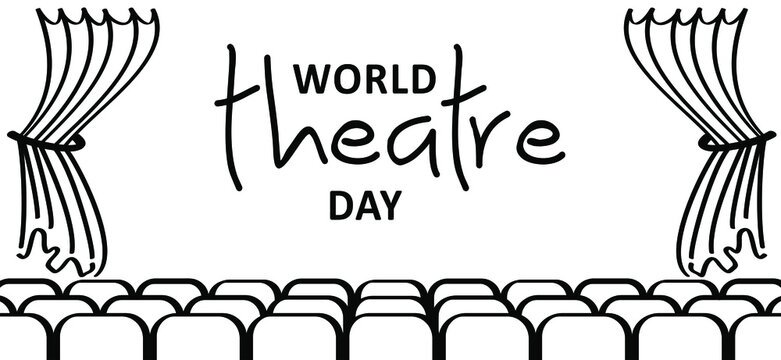World Theatre Day is a global celebration of the art of theatre, observed annually on March 27th. Established in 1961 by the International Theatre Institute (ITI), this day is celebrated by theatre lovers, practitioners, and organizations worldwide. The day aims to promote the art of theatre and its contribution to society and culture.
History of World Theatre Day
The idea of World Theatre Day was first proposed by the International Theatre Institute (ITI) in 1961. It was initially celebrated on March 27th to coincide with the opening of the Théâtre des Nations in Paris, which took place on the same day in 1951. The Théâtre des Nations was an international theatre festival that aimed to bring together theatre practitioners from around the world and promote international cultural exchange.
Since then, World Theatre Day has been celebrated annually on March 27th. Each year, the ITI commissions a well-known theatre figure to write a message that is distributed around the world to mark the occasion. The messages have been written by some of the most celebrated figures in theatre, including Laurence Olivier, Peter Brook, and Arthur Miller.
Celebrating World Theatre Day
World Theatre Day is celebrated in various ways around the world. The aim is to promote the art of theatre and its role in society. Here are some of the ways in which the day is celebrated:
- Theatre performances: Many theatre companies stage special performances or productions to mark World Theatre Day. These may be free or ticketed events, and they may take place in traditional theatre spaces or non-traditional venues.
- Workshops and masterclasses: Theatre practitioners may offer workshops or masterclasses to share their skills and knowledge with others. These events may be targeted at aspiring actors, directors, designers, or other theatre professionals.
- Exhibitions: Museums or galleries may host exhibitions that showcase the history of theatre or highlight the work of contemporary theatre practitioners.
- Talks and discussions: Experts in theatre may give talks or participate in panel discussions on topics related to the art form. These events may be held in theatre spaces, universities, or other venues.
- Social media campaigns: Social media platforms are often used to promote World Theatre Day and raise awareness of the importance of theatre. Theatre companies and organizations may share messages, images, or videos to celebrate the day.
The Importance of Theatre
Theatre is an art form that has been around for thousands of years. It involves live performances of plays, musicals, and other theatrical works. Theatre can take many forms, from traditional plays performed in a theatre space to site-specific performances in non-traditional venues.
Theatre plays an important role in society and culture. Here are some of the reasons why theatre is important:
- Entertainment: Theatre provides audiences with entertainment and escapism. It can transport people to different times and places and allow them to experience stories and emotions that they may not encounter in their everyday lives.
- Education: Theatre can be used as a tool for education. It can teach audiences about history, literature, and social issues. Theatre can also help to develop critical thinking and communication skills.
- Cultural expression: Theatre is a form of cultural expression. It allows communities to express their identity and share their stories with others. Theatre can also promote cultural exchange and understanding.
- Social commentary: Theatre can be used to comment on social and political issues. It can challenge audiences to think about important topics and encourage them to take action.
- Employment: Theatre provides employment opportunities for actors, directors, designers, technicians, and other theatre professionals. It also contributes to the economy by generating revenue for theatres, restaurants, and other businesses.
The Future of Theatre
Theatre has faced many challenges in recent years, including the COVID-19 pandemic,



